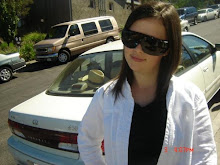It's 1954, and U.S. Marshals Teddy Daniels and Chuck Aule arrive at a small island in Massachusetts' Outer Harbor. It is home to Ashcliffe Hospital, a federal institution for the criminally insane, and one of the patients has escaped. Although the two men are new partners, they have already developed a wry, jocular relationship while also swapping personal, painful details. Daniels lost his much-loved wife two years prior in a fire, while Aule requested a transfer out of Seattle after being harassed over his personal relationship with a Japanese American woman. After interviewing the hospital's medical personnel, both men have the feeling they are being stonewalled, especially by the director, who seems to alternate between a cold authoritarianism and a sudden and sweeping compassion. When the island is hit by gale-force winds and Aule disappears, Daniels must go it alone, beset by the fear that he has been fed psychotropic drugs and the belief that the hospital is performing radical brain surgery as part of a secret-ops program. Lehane throws in one mind-bending plot twist after another in a psychological thriller that will leave readers in suspense right up to the end.
Summary lifted from amazon.com.
This is my first time reading one of Dennis Lehane's novels, although I've seen at least three movies adapted from his work so I had a pretty good idea of what to expect. I was a little surprised when I first started reading because I didn't feel drawn in right away. This was probably due to my high expectations, because after a while it became more of a page-turner and I found myself thinking about it when I had to put the book down. I loved this quote below so much that I wrote it down to include here. I think it's pretty representative of the overall sense of humor:
WHO IS 67?
(This is written on a note that's being read by the characters.)
(This is written on a note that's being read by the characters.)
Chuck said, "Fuck if I know."
Cawley stepped up beside him. "Quite similar to our clinical conclusion."
Okay, tell me that's not funny. You can't, can you?
I really enjoyed this book and I highly recommend it to everyone. It is so good! As I said above, it's a page-turner and I love the subtle humor. One thing that I found interesting is that I expected one story and found a completely different one. I liked where the story went, but it could have gone in a completely different direction and been just as good. I wrote down in my notes "how much violence can a man carry before it breaks him?" but I don't know if a character verbalized that theme or if I did, I can't remember writing it down. It hits the nail on the head pretty good. There was a lot of flickering between reality and delusions in dreams, which is generally not something I enjoy. Stream of consciousness is just not my thing. But it worked in this book. And finally, I completely related to Daniels' main struggle, which I can't elaborate on, because it's part of a great reveal. Suffice to say, I understood what motivated him (to a point, at least) and that made me enjoy the read all the more.
So how did the movie adaptation fare? Pretty well, although I enjoyed reading the book more than watching the movie. I thought the reveal of the truth, and the circumstances surrounding the reveal and the explanations of the truth, in the book was more effective. For one thing, the migraine dreams in the book seem more related to the reveal at the end than the dreams in the movie. The movie focused more on Daniels' experiences in World War II, something I'm still a little puzzled by. Perhaps Scorsese was more intrigued by that aspect than Lehane was? Also, the movie was a little more gruesome in its depictions of violence than the book and it didn't add anything to the story or my reactions to it. It was just a little more gruesome. But that's not to say that I didn't like the movie -- it's definitely worth seeing, especially for the atmosphere it created. The look of the settings and costumes is beautiful. I just thought the book was a better experience, something that is usually the case.




No comments:
Post a Comment